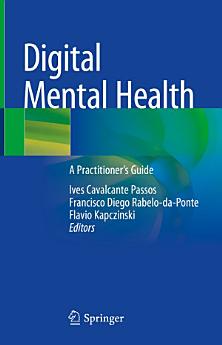Digital Mental Health: A Practitioner's Guide
About this ebook
Digital Mental Health will help clinicians and researchers, especially psychiatrists and psychologists, to define measures and to determine how to test apps or usefulness, feasibility and efficacy in order to develop a consensus about reliability. These professionals will be armed with the latest evidence as well as prepared to a new age of mental health.
About the author
Francisco Diego Rabelo-da-Ponte is a psychologist. He completed his M.Sc and Ph.D in psychiatry and behavioral sciences at the Federal University of Rio Grande do Sul, Brazil. He was visiting PhD student at the University of Central Lancashire (UK) focused on neurodevelopment and neuroimmunology. In 2019, Rabelo-da-Ponte received the Samuel Gershon Award for Junior Investigators organized by International Society for Bipolar Disorders (ISBD). In 2020, he received the International Travel Grant Award from the International Brain Research Organization (IBRO). Dr. Rabelo-da-Ponte has a total of 26 peer-reviewed articles in top psychiatric journals in Pubmed. Currently, he is a post-doctorate researcher at King's College of London.
Flávio Kapczinski, MD, PhD, is a leader in the field of research on bipolar disorder and a Professor of Psychiatry at McMaster University. Prof. Kapczinski has also served as a mentor, with several former trainees currently occupying important academic positions around the globe. Currently he is among the three most productive researchers in the field of bipolar disorder, and among the five most influential researchers in psychiatry in Canada. In 2013, he received the Mogens Schou Prize for Education from the International Society of bipolar disorders. Clarivate Inc (formerly Thomson Reuters) lists Prof. Kapczinski among the most influential minds in academia, and he has a total of 548 peer-reviewed articles in Pubmed. He published a total of 8 books, including the Springer book entitled “Personalized Psychiatry - Big Data Analytics in Mental Health”.




